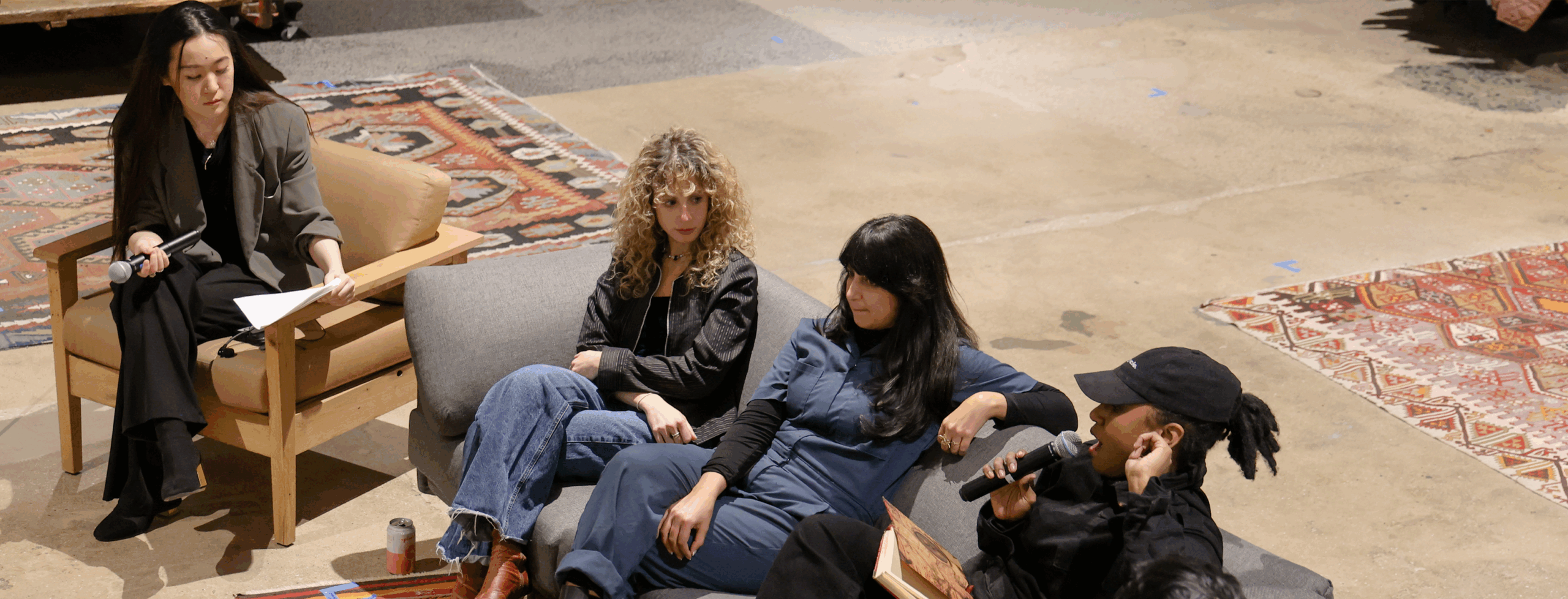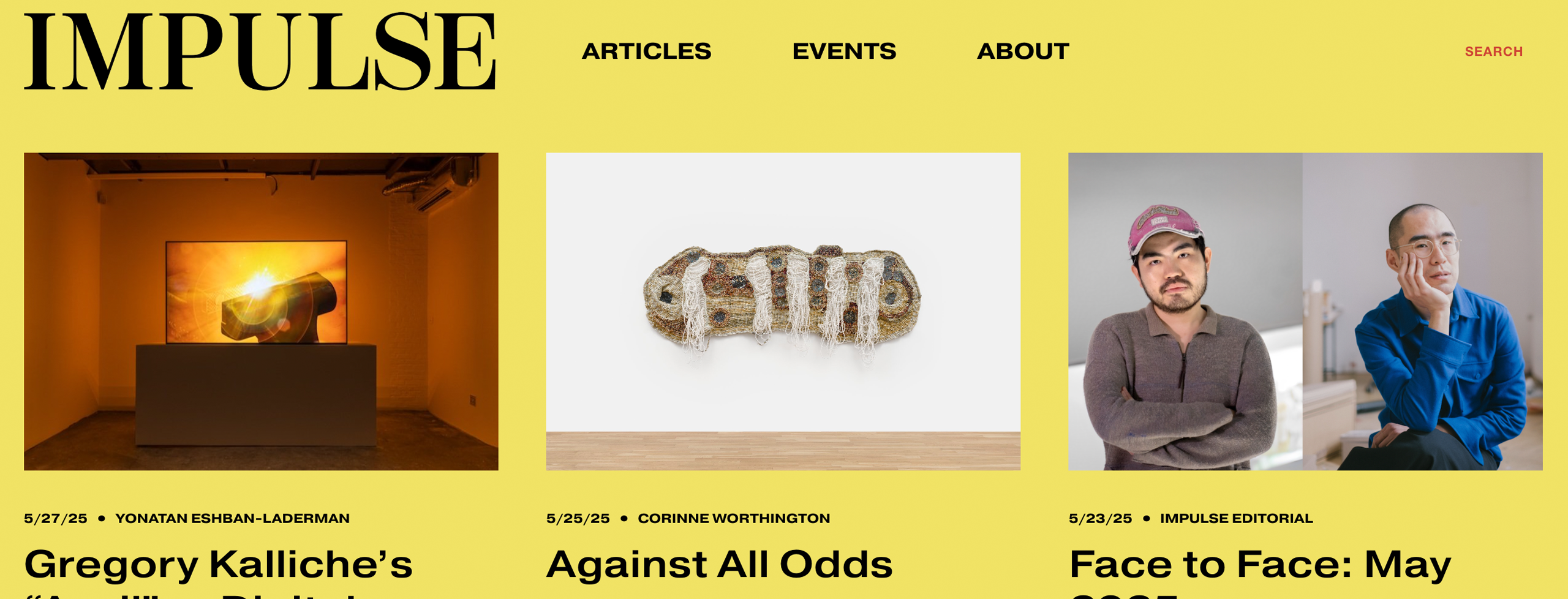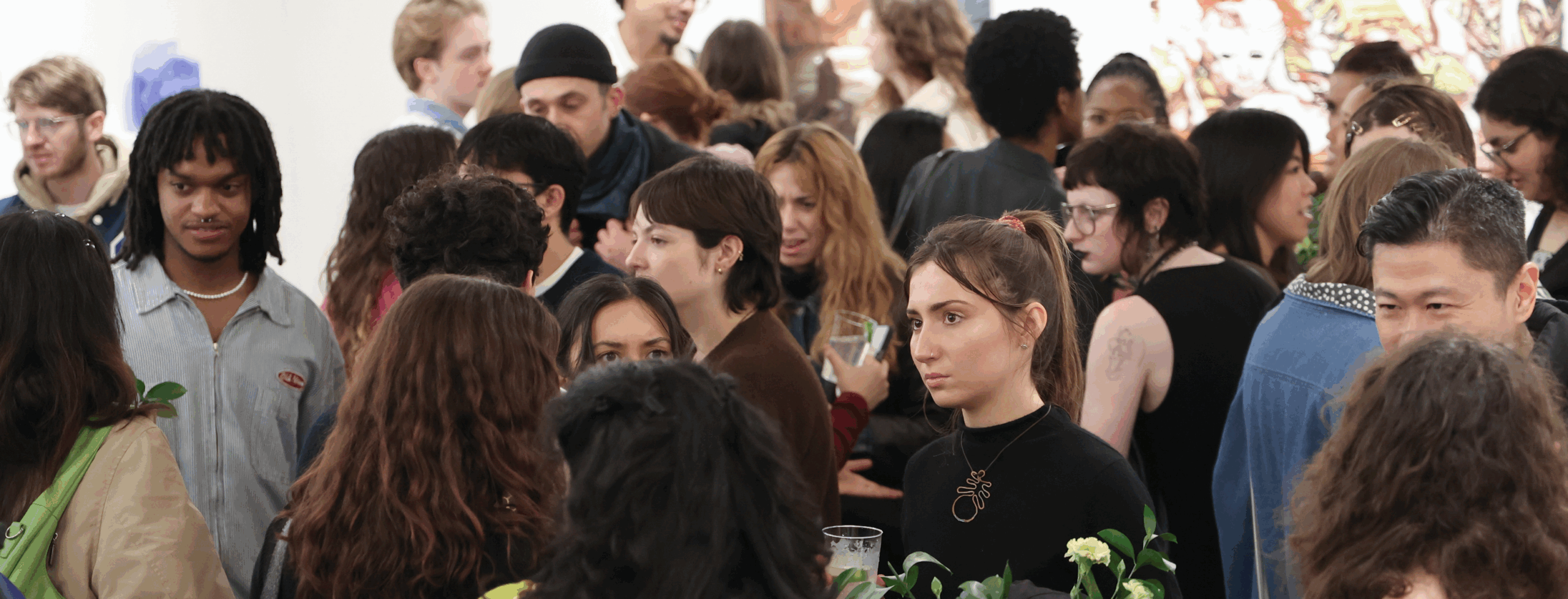
Pushing Beyond Boundaries: A Conversation with Jenny Wang
Jenny Wang, Founder and Editor-in-Chief of IMPULSE Magazine, speaks about her vision of the publication, stories that interest her, and the importance of highlighting artists who bring global perspectives to the U.S. art scene.
A writer and editor focusing on contemporary visual art, culture, and media theories, Jenny Wang approaches multidisciplinary art and design through a critical, experimental, and historically informed lens. In this conversation, she discusses how IMPULSE Magazine fosters experimental art writing and shares the essentials of successful collaborations with writers and artists.
New York Foundation for the Arts (NYFA): Tell us about IMPULSE Magazine. In what context did you establish the online publication, and what is your vision for it?
Jenny Wang (JW): I started IMPULSE after having been a freelance writer for a while. One of my mentors, Anna Mikaela Ekstrand, runs her own media outlet, Cultbytes, and I’ve always looked up to the work that she does. I wanted to build a platform that tunes into the “nowness” of contemporary visual culture and that experiments with different forms of art writing. Among the leading visions for IMPULSE Magazine is spotlighting contemporary artists whose work is socially engaged. We also aim to help emerging writers build connections in the industry and learn about alternative spaces, curatorial collectives, community events, and more.
NYFA: You’ve described the IMPULSE Magazine as a platform that pushes the boundaries of contemporary art criticism and theory formation. How do you put that vision into practice? What kind of stories interest you?
JW: Part of this journey is identifying and supporting writers who want to have their voices heard and who engage critically not only with art but also with text itself. Of course, we welcome traditional formats of art criticism and interviews, but we are always open to experimentations. For instance, writer Jacksun Bein wrote two reviews for IMPULSE that started off in a flow-of-consciousness, embodied essay-like way. Bein would go on to incorporate visual analyses in the (very long but well-written) footnotes. I’ve never seen art reviews in this format and was very excited to work on these pieces. IMPULSE writers also have studio visits with artists and write about the behind-the-scenes of their practice, which really breaks down the preconception that writing is a solitary activity. We love working with writers and growing alongside them.

NYFA: The magazine features many artists born outside of the U.S. who are building their arts careers here. It invites them to share their experiences growing and sustaining their careers while navigating the immigration system. Why is it important for IMPULSE magazine to highlight the perspectives of immigrant artists?
JW: We are interested in artists who bring global perspectives into the art industry. We feature not only foreign-born artists working in the US, but also immigrant artists working in any country that’s a second/third/fourth…home to them, creatives who identify as third-culture kids, and the list goes on. It’s important to highlight these international perspectives because I truly believe that the art world as we know it wouldn’t exist without cross-cultural exchange.
Navigating the legal, academic, and career-related aspects of living in a different country can frequently feel overwhelming and isolating. Putting visa application materials together, maintaining an art practice, working a full-time job, and juggling personal relationships—all at the same time—can really take a toll on you. Therefore, we want to highlight the stories of people going through similar things so that others can feel less alone. It’s also a great way to share resources and information, alongside bringing awareness to the human side of processes otherwise understood as bureaucratic.

NYFA: As Editor-in-Chief of IMPULSE Magazine, you collaborate with arts writers and artists from around the world. In your experiences, what are the keys to successful collaborations?
JW: Keeping an open line of communication is the most important aspect to successful collaborations, and I always make sure to ask a lot of questions during the editorial process whenever there’s something unclear or when more context is warranted.
I think some of the best collaborations I’ve done in the past started off as spontaneous ideas that came up at an opening or during dinner. It’s always wonderful to see how sharing new ideas and resources with friends can lead to so many amazing opportunities because of how interconnected the art world is.
NYFA: Do you have any advice for immigrant artists who are writing about their work and practice in English? What resources or forms of support did you rely on while developing your writing skills?
JW: First of all, it is really impressive that a lot of immigrant artists write about their work and practice in a language that’s not their first language. I think it’s something that cannot be taken for granted. I’m not really sure if I’m in the right place to give any advice, but please be confident in your voice and your writing! And please don’t apologize for your English!
My first language is Mandarin Chinese. When I was working with an editor for the first time, what really helped me was being completely amenable to edits and trusting the editor’s judgment even when it contradicted my own. When I was in college, I really took advantage of the writing center and booked many appointments with mentors. I think, generally speaking, any form of peer review with friends who can be completely honest and upfront is great. I also really love online resources like The Chicago Manual of Style (yes, sometimes I read it for fun) and Grammarly.
When I was working with an editor for the first time, what really helped me was being completely amenable to edits and trusting the editor’s judgment even when it contradicted my own.
-Jenny Wang
About Jenny Wang
Xuezhu Jenny Wang is an art journalist with a background in postwar art and architecture. She holds a B.A. degree from Columbia University and is based in New York City. Wang is the Editor-in-Chief of IMPULSE Magazine.
– Ya Yun Teng, Program Officer, Immigrant Artist Program, NYFA Learning
This post is part of the Immigrant Artist Program Newsletter. Subscribe to this free monthly e-mail for artist’s features, opportunities, and events. Learn more about NYFA Immigrant Artist Mentoring Program.